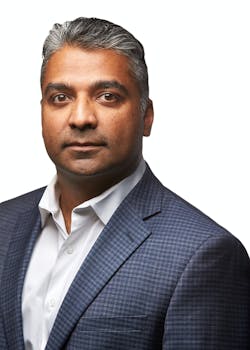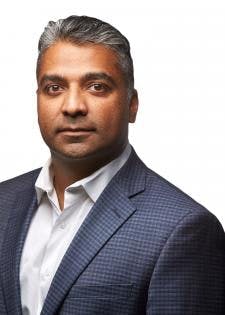Digi-Key Electronics' Robbie Paul
The internet of things (IoT) is almost ubiquitous now. It’s everywhere. And agriculture is truly one of the areas where it can have the biggest impact. Smart farming in the agriculture industry is an emerging concept that has the opportunity to revolutionize farming for the digital era.
The driving force of smart farming is IoT, which connects the agriculture process from start to finish to be more data-driven, data-enabled and efficient, while also optimizing the human labor involved.
Farmers can integrate smart agriculture into their practices in many different ways—using drones to survey fields, innovative approaches to ocean farming, implementing precision-mapping systems to optimize efforts and relying on guidance from artificial intelligence to farm smarter.
Geographic equity
Feeding the world’s population is a growing challenge—9 billion people (and counting) relying on a fixed amount of arable land. In order for us to succeed, we’ve gotten to a point where we need to scale our operations for efficiency.
Longer-range technologies are needed for these big farms—cellular is the obvious choice, and the communications options in agtech are LoRa (long range) technology and lower versions of cellular technology called CAT-M and Narrow Band IoT. Most IoT features in a smart-agriculture setup (think moisture sensors) don’t need to transmit voice and sound; they just send a bit of data here and there over long-range technology. These communications options are just coming to the mass-market forefront.
Our position
While Digi-Key is not backing a specific supplier, we’re actively supporting the market and the innovators in this realm. We’re working to support the creation of products and services that help feed the world. And we believe the innovators in the regions where this work is happening know the requirements best of their specific regions. We need these local innovators to specify their own requirements and get everyone collaborating to support global innovation.
It’s really about understanding the future farm, not just the traditional farm. If we can focus on what the farms of tomorrow could look like, each community around the globe could have their own sustainable farm, no matter their location, climate or other particulars.
The future farmstead vision
So, what does the farmstead of the future look like? Remember…this is the industry least penetrated by digital technology and agriculture is a complex moving system that technology needs to fit into, not the other way around.
We believe the future farm uses resources as efficiently as possible. Precision farming allows the industry to reduce the number of herbicides and pesticides in the environment and minimize water contamination. Other benefits and innovations include the visualization of data, autonomous systems, and overall farm infrastructure.
Our supplier partners provide the hardware, but what we’re seeing is there are other entities—like systems integrators and solution providers—that bring together the hardware, software and services pieces specific to the farmer. One of our goals with agriculture is to work with everyone from systems integrators to the end customer, along with the farmers and growers, who work tirelessly to feed the world.
The intersection of new technologies and modern farmers creates the need for new innovations. To farm better, we must farm differently.
A new wave of innovation
Ten percent of farmers in North America are already using soil sensors in as many as 5 million acres of land with promising results. Precision farming is expected to reach a 32% market share by 2025 due to the rising need for agriculture technologies. New innovations in both equipment and education will fuel this growth. Farming technologies that increase efficiency and crop yield are just one example of how technology is redefining what it means to grow and harvest food in today’s connected world.
New approaches to agriculture and farming technologies are required to address the ever-changing nature of our modern world. Innovators, combined with willing professionals across the industry, will chart a new path forward to grow, harvest and feed the people of this planet.
The future of farming begins when we farm differently and make new technology accessible to all.
Robbie Paul is director of IoT business solutions for Digi-Key Electronics, which recently produced a smart-farming video series that you can view here.

